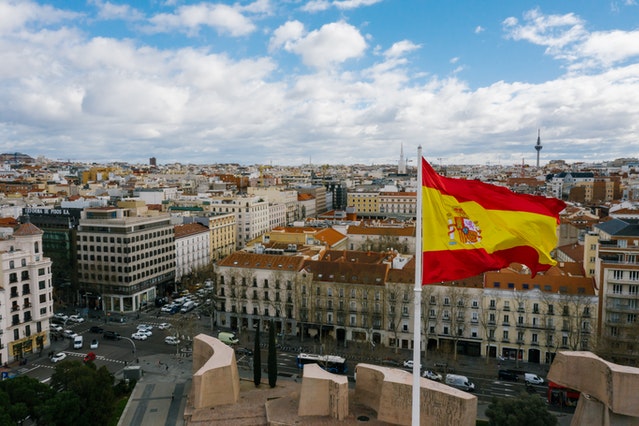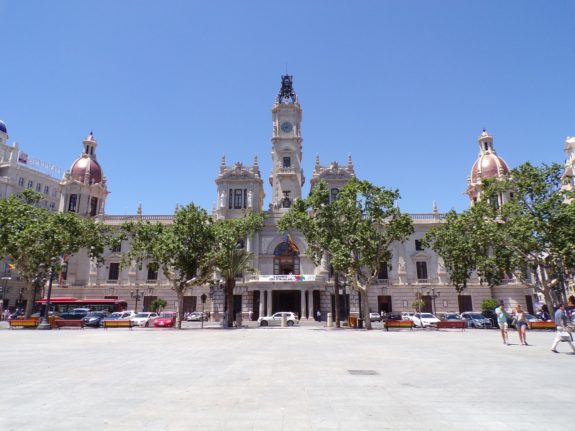If you are a citizen of a non-EU country then you may benefit from the 90-day rule, allowing you to visit Spain for 90 days out of every 180 without needing a visa. Countries including the UK, USA, Canada and Australia all benefit from this rule.
Citizens of certain countries require a visa even for a short trip – find the full list here.
However, the tricky part comes when you want to move to Spain and spend longer than just those three months. What are your visa options, whether you want to move to Spain to retire, to work or even to set up your own business?
Retirees:
The best option for retirees is to apply for the non-lucrative visa (NLV). This allows you to live in Spain for one year, but as the name suggests you are not allowed to work.
In order to apply an applicant must show they have €27,792 at their disposal for one year (€34,740 if it’s a couple), as well as comprehensive health insurance.
If you want to stay in Spain beyond this year, you can either renew it for a further two years (again proving you have the financial means) or change your visa for a work permit or a self-employed permit through the residence modification process.
The NLV is also the best option for those who want to live abroad temporarily. Those who want to stay in Spain for more than three months, but are not planning on living here permanently. It’s ideal for those on a sabbatical for example who have savings or investments and who do not need to work in Spain while here, but want to stay here for a year. It’s also the best option for those who have the financial means to do so.
READ ALSO: What are the pros and cons of Spain’s non-lucrative visa?

Workers:
If you plan on moving to Spain for work or in order to look for a job, then you will need a work permit. Unfortunately getting a work permit can be tricky because in most cases as a non-EU national, the position you apply for must be on Spain’s shortage occupation list.
Your employer will also have to prove that there were no other suitable candidates within the EU to be able to fulfill the vacancy. This means that only highly skilled workers or those that work in industries that need workers are likely to be successful. These mostly include jobs in the maritime or fishing industries or sports coaches.
If you are wanting to become self-employed, then the entrepreneur visa could be a good option, allowing you to live in Spain for one year in order to open up a business. Be aware however your business must be considered as anything of innovative character with special economic interest for Spain.
You will have to prove you have the necessary qualifications to set up your business and will also have to submit your business plan to the authorities for it to be approved. The entrepreneur visa can be extended for a further two years after your initial one has been granted.
READ ALSO: What you need to know about Spain’s visa for entrepreneurs
Investors:
If money is no object and you want to invest in a Spanish property then, you’ll want to apply for Spain’s golden visa. To be eligible, you must invest €500,000 before taxes in a property here. It won’t allow you to work, but it will allow you access to the entire Schengen area. This will also allow your spouse and any dependent children to move to Spain with you.
Another option for investors is the entrepreneur visa as described above, if you want to use your investment to set up a business in Spain.
Joining family members:
If you happen to have a family member who is an EU citizen and lives in Spain or a non-EU relative that has residency in Spain, then you have another option. This is called the family reunification visa. However, in order to be eligible, you need to be a spouse or a dependent child and your relative must have the means to financially support you.
READ ALSO:
- How can non-EU nationals bring family members to live in Spain?
- Q&A: Can EU nationals bring non-EU family members over to Spain?
Students:
Enrolling on a course and applying for a student visa is one way for non-EU citizens of any age can live in Spain beyond the regular length of a tourist stay.
You will have to apply for a short-term or long-term student visa, depending on the length of their course. A student advantages can several advantages such as being able to work part-time or bringing over family members.
READ MORE: What are the pros and cons of Spain’s student visa?



 Please whitelist us to continue reading.
Please whitelist us to continue reading.
Member comments